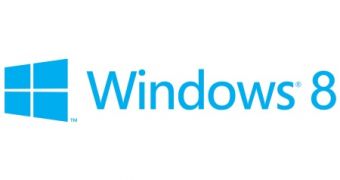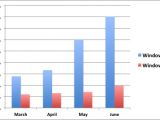Windows 8, the next-generation operating system from Microsoft, is currently available in a pre-release flavor for people all around the world to take it for a spin for free.
This is the same approach that Microsoft used for Windows 7, allowing users to get a taste of the product before it even reached shelves, so as to stir their interest.
However, it appears that things did not work as planned for Windows 8, and that interest in the pre-release flavors of the operating system was lower than for Windows 7.
A recent article on Computerworld, based on data coming from Net Applications, shows that enthusiasm in the next-generation platform is indeed lower than the one for Windows 7 three years ago.
Said data unveiled that only 0.2 percent of all PCs in the world running Windows were powered by a pre-release flavor of Windows 8.
Windows 8 was present on only 0.18 percent of all computers that went online in June, statistics from Net Applications also unveiled.
Compared to that, interest in Windows 7 was much higher in June 2009. The platform was loaded on 0.80 percent of all Windows machines at the time, and accounted for 0.75 percent of all computers.
The pre-release flavors of Windows 8 are estimated to have been loaded on around 2.9 million machines in June 2012, from the total estimated global installed base of 1.6 billion last year. In comparison, Windows 7 pre-release powered 9.4 million computers out of about 1.25 billion.
Overall, Windows 7 had two to three times higher market share in the first month after the release of each new sneak peak, Computerworld also notes.
Windows 8 falls short of Windows 7 from other points of view as well. However, as Microsoft is gearing up for the RTM flavor in early August and the General Availability in late October, things might change in its favor.

 14 DAY TRIAL //
14 DAY TRIAL // 
